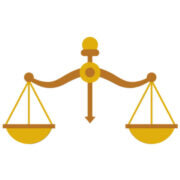Best Motorcycle Accident Lawyers in United States
Share your needs with us, get contacted by law firms.
Free. Takes 2 min.
Or refine your search by selecting a city:
List of the best lawyers in United States
About Motorcycle Accident Law in the United States
Motorcycle accident law in the United States encompasses a range of legal issues that arise when accidents involve motorcycles. These laws are designed to protect the rights of motorcyclists and ensure they receive fair treatment and compensation following an incident. The nature of motorcycle travel tends to result in more severe injuries, making the legal outcomes all the more crucial for those involved. Understanding the nuances of traffic laws, insurance requirements, and liability is essential for navigating the post-accident legal landscape.
Why You May Need a Lawyer
There are several situations where individuals involved in motorcycle accidents may need legal assistance:
- Liability disputes: Determining who is at fault in an accident can be complicated, especially when there are conflicting accounts of the incident.
- Insurance claims: Insurance companies may deny claims or offer settlements that do not adequately cover injuries and damages.
- Serious Injuries: Severe injuries can result in complex medical treatments, rehabilitation, and lost wages, necessitating thorough legal evaluation to ensure full compensation.
- Legal representation: Facing legal proceedings such as lawsuits or insurance negotiations may require professional guidance.
- Wrongful death: In fatal accidents, families might pursue wrongful death claims to seek justice and compensation for their loss.
Local Laws Overview
Motorcycle accident laws can vary widely from one state to another, although some key aspects include:
- Helmet laws: Many states have mandatory helmet laws for certain age groups or all riders.
- Insurance requirements: Motorcyclists are generally required to carry a minimum amount of liability insurance; however, requirements can differ by state.
- Comparative negligence: In some states, both parties in an accident may share liability, affecting the amount of compensation awarded.
- No-fault laws: Some states have no-fault insurance laws where accident parties receive compensation from their own insurance provider regardless of fault.
- Time limits: State laws set statutes of limitations for filing personal injury lawsuits, usually ranging from one to six years.
Frequently Asked Questions
1. What should I do immediately after a motorcycle accident?
Seek medical attention, report the accident to the police, document the scene with photos and gather contact information from witnesses.
2. How do I prove liability in a motorcycle accident?
Consider evidence from the accident scene, witness statements, and traffic cameras. A lawyer can help reconstruct the accident.
3. Can I file a claim if I wasn’t wearing a helmet?
You may still be able to file a claim, but your compensation might be reduced under comparative negligence, depending on state law.
4. What types of compensation can I receive?
Compensation may cover medical bills, property damage, lost wages, pain and suffering, and in some cases, punitive damages.
5. How long do I have to file a claim?
The statute of limitations varies by state, but it's generally between one and six years from the date of the accident.
6. Will my insurance cover medical expenses?
This depends on your policy. Some policies cover personal injury while others may only cover liability.
7. Is hiring a lawyer necessary if the accident wasn’t my fault?
Even if not at fault, a lawyer can help with insurance claims and securing fair compensation for damages and injuries.
8. How long will it take to settle my accident claim?
Cases can take anywhere from a few months to several years, depending on their complexity and whether they go to court.
9. Can I still claim damages for a hit-and-run motorcycle accident?
Yes, but it can be more challenging. Uninsured/underinsured motorist coverage may be a factor.
10. If the other driver disputes liability, what should I do?
Gather as much evidence as possible. Legal advice or representation may be critical in such disputes.
Additional Resources
Consider reaching out to these resources for additional information and assistance:
- National Highway Traffic Safety Administration (NHTSA) - for safety statistics and reports.
- American Motorcyclist Association (AMA) - promotes the rights of motorcyclists.
- State Department of Motor Vehicles (DMV) - for local motorcycle regulations.
- Legal aid organizations in your area for free or low-cost legal services.
Next Steps
If you need legal assistance following a motorcycle accident:
- Contact a personal injury attorney specializing in motorcycle accidents.
- Gather all documentation related to the accident and any medical treatments received.
- Prepare any questions or concerns to discuss with your attorney.
- Consider whether you prefer an attorney who can negotiate a settlement or has trial experience in case it goes to court.
- Reach out to local or national motorcycle organizations for referrals and support.
Lawzana helps you find the best lawyers and law firms in United States through a curated and pre-screened list of qualified legal professionals. Our platform offers rankings and detailed profiles of attorneys and law firms, allowing you to compare based on practice areas, including Motorcycle Accident, experience, and client feedback.
Each profile includes a description of the firm's areas of practice, client reviews, team members and partners, year of establishment, spoken languages, office locations, contact information, social media presence, and any published articles or resources. Most firms on our platform speak English and are experienced in both local and international legal matters.
Get a quote from top-rated law firms in United States — quickly, securely, and without unnecessary hassle.
Disclaimer:
The information provided on this page is for general informational purposes only and does not constitute legal advice. While we strive to ensure the accuracy and relevance of the content, legal information may change over time, and interpretations of the law can vary. You should always consult with a qualified legal professional for advice specific to your situation.
We disclaim all liability for actions taken or not taken based on the content of this page. If you believe any information is incorrect or outdated, please contact us, and we will review and update it where appropriate.
Browse motorcycle accident law firms by state in United States
Refine your search by selecting a state.














